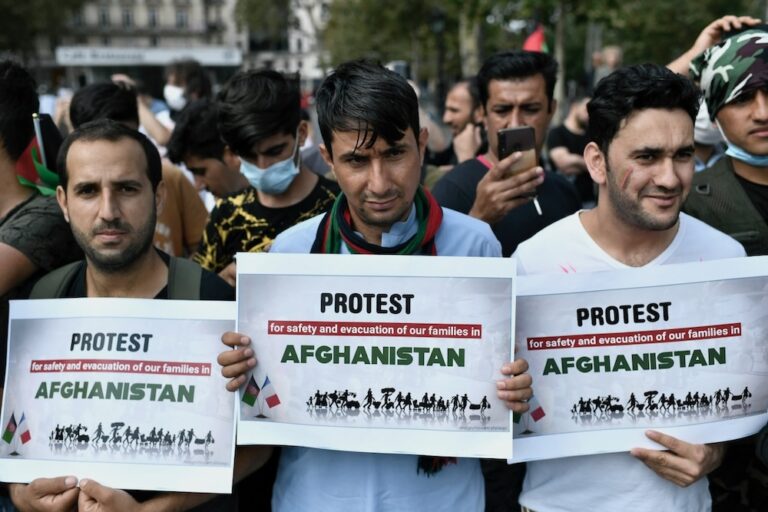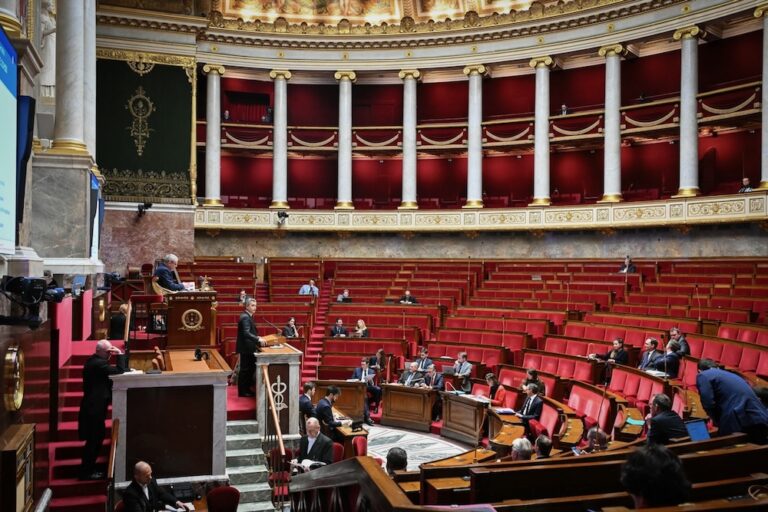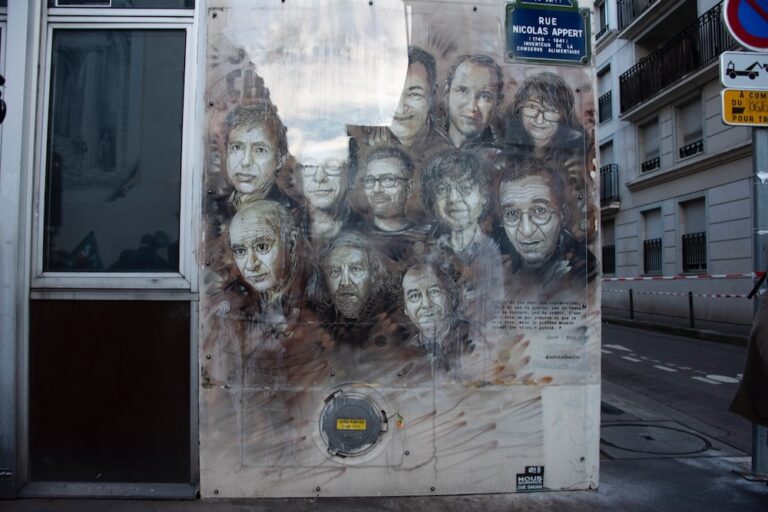(RSF/IFEX) – The following is an RSF press release: France – Cuba Official visit to France of Felipe Perez Roque, Cuban Minister of Foreign Affairs (19-21 January 2000) FIDH and RSF condemn the deterioration of human rights in Cuba On the occasion of an official three-day visit to France of Cuban Minister of Foreign Affairs […]
(RSF/IFEX) – The following is an RSF press release:
France – Cuba
Official visit to France of Felipe Perez Roque,
Cuban Minister of Foreign Affairs (19-21 January 2000)
FIDH and RSF condemn the deterioration of human rights in Cuba
On the occasion of an official three-day visit to France of Cuban Minister of Foreign Affairs Felipe Perez Roque, the International Federation of the League of Human Rights (Fédération internationale des ligues des droits de l’homme, FIDH) and RSF condemn the deterioration of human rights and press freedom in Cuba in 1999. The two organisations also condemn the ban against RSF going to the island.
FIDH and RSF are concerned about the growing number of government opponents being detained and the increase in political prisoners in 1999. During the year, authorities proceeded with a wave of detentions that were the “most severe of the decade,” according to Elizardo Sánchez, president of the Cuban Commission For Human Rights and National Reconciliation (Commission cubaine pour les droits de l’homme et la réconciliation nationale, CCDHRN). According to CCDHRN, during the months of November and December alone, no fewer than 260 pacifist opponents and independent journalists were arrested and almost 200 more were placed under house arrest. CCDHRN reports that the number of political prisoners went from 339 in 1998 to 344 in 1999, reversing the trend which had been consistently decreasing over several years. A few months earlier, the four most well-known dissidents on the island were condemned, in a trial held behind closed doors, to prison sentences ranging from three and a half years to five years. In a text published in June 1997, entitled “The Homeland Belongs To Us All”, Vladimiro Roca, Marta Beatriz Roque, René Gomez Manzano and Félix A. Bonné Carcasés, criticised the regime and demanded democratic reforms.
The two international human rights organisations also condemn the March 1999 passing of new legislation which specifically restricts political dissidence and the independent press in the name of “protecting the national and economic independence of Cuba” against United States’ political agenda. The law makes provision for prison sentences of up to twenty years and heavy fines penalising anyone who disseminates “subversive” information with an end to “upseting the constitutional order, destabilising the country and liquidating the socialist and independent Cuban State.” Collaboration with foreign media can be penalised by prison sentences of two to five years.
The law particularly threatens independent journalists and human rights defenders. In Cuba, where the Constitution stipulates that “freedom of expression and the press is secondary to the goals of socialist society,” only the official press is authorised. Approximately 100 independent journalists, grouped into a dozen press associations that are not recognised by the State, are faced with constant harassment. In 1999, four of them were forced into exile, fifty were detained, forty-one were placed under house arrest, and four are still in jail. The four in question are Bernardo Arévalo Padron, Manuel Antonio González Castellanos and Leonardo Varona González, all three of whom were sentenced from six months to six years in prison for “contempt” against the Chief of State; and Jesús Joel Díaz Hernández, who was arrested on 18 January 1999 and sentenced the following day to four years in prison for being a “danger to society”.
To conclude, FIDH and RSF are concerned about the conditions under which political prisoners are detained. Several of them have been badly treated and have not received the health care their conditions require. Among them is Francisco Chaviano González, who was condemned to fifteen years in prison in 1994 for “revealing State secrets.” He suffers from an ulcer, arthritis, and respiratory problems. He was beaten a number of times by prison guards, resulting in a tibial fracture. FIDH and RSF also condemn the ban against RSF’s attempt to investigate the violations of press freedom in situ. In July 1996, when an RSF representative attempted to go to the island, he was expelled upon arrival at the Havana airport. Other organisations, such as Amnesty International, have suffered the same ban.


